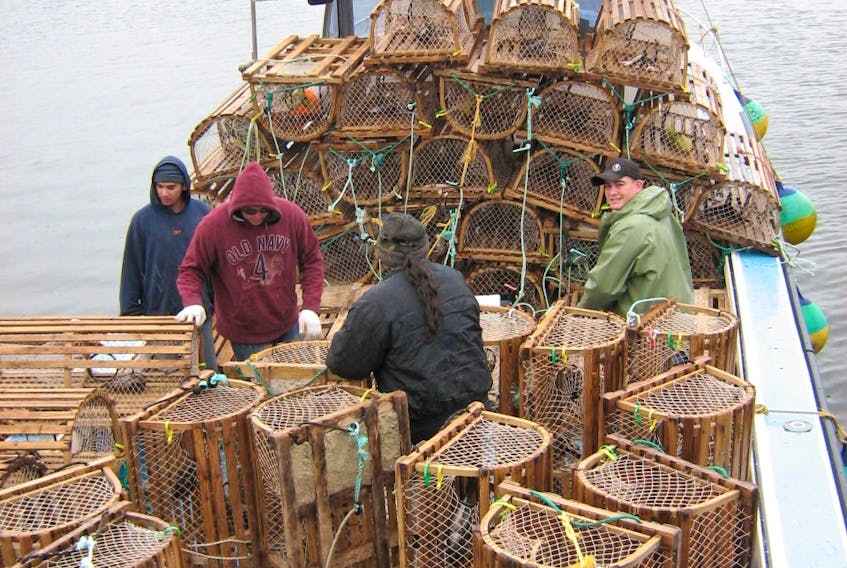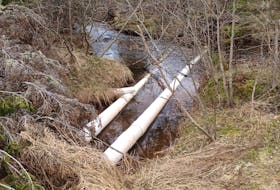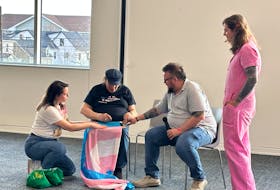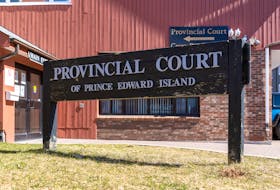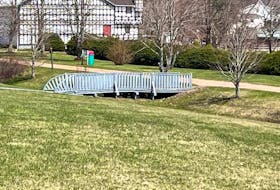Lennox Island First Nation Chief Darlene Bernard says the right for the Mi’kmaq on P.E.I. to fish for a moderate livelihood is “not up for debate".
In a statement to The Guardian, Bernard says a “positive discussion" has taken place with the P.E.I. Fishermen’s Association (PEIFA) in the wake of the escalating crisis over Indigenous fishing treaty rights.

“Our fight is not with the non-Mi’kmaq commercial fishers, it is with the federal government," says Bernard.
“However, we also told the PEIFA that we need their public acknowledgment and support of our constitutional right. The treaties we signed with their ancestors guaranteed our people the right to fish for a moderate livelihood and those treaty rights are now entrenched in our Constitution and have been affirmed by the Supreme Court of Canada. That is not up for debate."
Ian MacPherson, executive director of the PEIFA, also describes the meeting as productive and positive, adding Indigenous and non-Indigenous fishers have enjoyed a harmonious relationship in Prince Edward Island.
"Basically we fish side by side during the commercial fishing season," says MacPherson.

There are the equivalent of 33 lobster licences between the Lennox Island and Abegweit First Nation bands, according to L’nuey, the Epekwik Mi’kmaq Rights Initiative.
There are two commercial lobster fishing seasons on P.E.I. The first runs from May till the end of June; the second from August till October.
Bernard and Abegweit First Nation Chief Junior Gould have sent an open letter to Prime Minister Justin Trudeau calling on the PM to defuse the tensions that has seen violence erupt in southwestern Nova Scotia fishing communities.
A fire that police are calling suspicious destroyed a lobster pound in Middle West Pubnico, N.S., early Saturday. The blaze capped a week of violence that included two other clashes involving hundreds of people outside lobster pounds that store Indigenous-caught lobster.

MacPherson says the PEIFA does not support the violent actions of commercial fishers. He says the PEIFA does not question treaty rights and wants to work with the First Nations bands towards a moderate livelihood fishery that works for everyone.
"Our frustration is centred around the federal government ... there needs to be more fulsome discussion and at this point we are being shut out of it," he adds. "Good, honest, open dialogue is the best way."
Bernard says all concerned parties have responsibility for conservation issues and ensuring an ongoing sustainable fishery.
L’nuey considers all non-Aboriginal fisheries to be licensed/privilege-based fisheries.
“They are not rights-based and therefore are lower in priority to fisheries flowing from constitutionally entrenched Aboriginal and treat rights," says a statement from L’nuey.
L’nuey lists the priority of fishery resource management as beginning with conservation, followed by "Aboriginal food, social and ceremonial fishery" and next moderate livelihood fishery.
The latter two, L’nuey says, are based respectively on constitutionally entrenched Aboriginal rights and constitutionally entrenched treaty rights.
Next comes federally regulated commercial fishery, based on privilege, and finally recreational and sport fishery, also based on privilege.
Chief Mike Sack of the Sipekne’katik First Nation, who earlier this week said the army is needed to prevent commercial fishermen from taking the law into their own hands, also argues Indigenous people in Atlantic Canada and Quebec have a treaty right to fish for a moderate livelihood — a right upheld by the Supreme Court of Canada.
Many non-Indigenous critics, however, cite a clarification issued by court, stating the Mi’kmaq treaty rights would be subject to federal regulations to ensure fish conservation.

